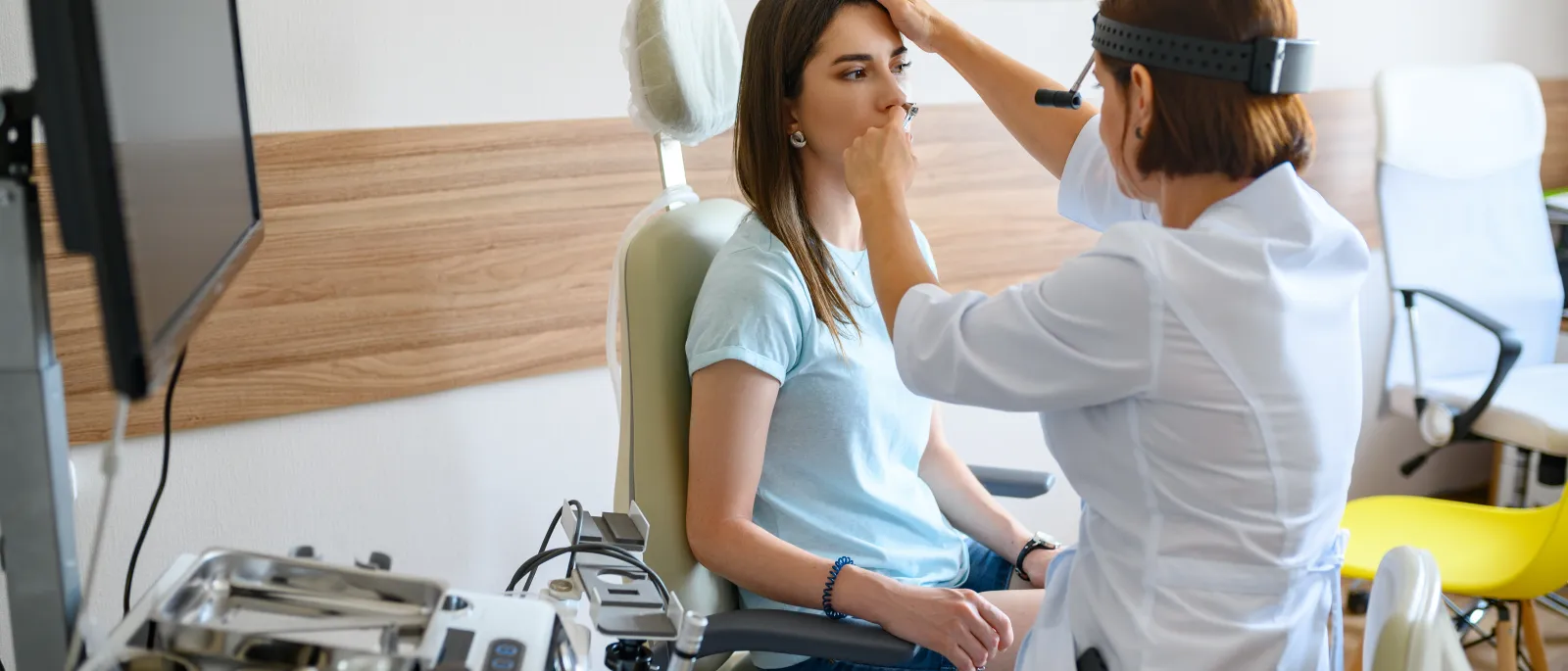- Learn the signs indicating it's time to consult an ENT specialist for nasal polyps.
- Discover various nasal polyposis treatment options available.
- Understand why nasal polyps may not go away on their own and when intervention is necessary.

Nasal polyps are benign growths that develop in the lining of the nasal passages or sinuses. These soft, non-painful masses typically result from chronic inflammation, which is often linked to conditions such as asthma, recurring infections, allergies, medication sensitivities, or specific immune disorders. Although small polyps might not produce symptoms, larger ones can cause breathing difficulties, a diminished sense of smell, and frequent infections. Knowing when to consult an ENT specialist for nasal polyps is essential for effective management and treatment.
Symptoms of Nasal Polyps
Recognizing the symptoms of nasal polyps is the first step toward seeking appropriate medical care. Common symptoms include:
- Persistent stuffiness
- Runny nose
- Postnasal drip
- Decreased or absent sense of smell
- Facial pain or headache
- Snoring
- Frequent nosebleeds
If you experience these symptoms for more than ten days, it's advisable to consult an ENT specialist. Persistent symptoms could indicate the presence of nasal polyps or another underlying condition that requires professional evaluation.
When to See an ENT Specialist
Be sure to seek medical advice if you notice persistent symptoms of nasal polyps, especially if they impact your daily life. An ENT specialist can accurately diagnose and recommend the most effective nasal polyposis treatment. Early intervention can avoid complications and improve the quality of life.
Persistent Symptoms
If over-the-counter medications fail to alleviate your symptoms after a week, or if symptoms recur frequently, it's time to see an ENT specialist. They can perform a thorough examination, which might include nasal endoscopy or imaging studies, to determine the presence and extent of nasal polyps.
Breathing Difficulties
Difficulty in breathing through the nose can significantly affect sleep and daily activities. If nasal polyps are causing obstructive breathing issues, an ENT specialist can recommend treatments to improve airflow and sinus function.
Recurrent Infections
Frequent sinus infections that do not respond to standard treatments could be a sign of nasal polyps. Chronic inflammation and blockage can create an environment conducive to infections. An ENT specialist can suggest ways to remove nasal polyps and reduce infection risk.
Nasal Polyposis Treatment Options
Effective treatment for nasal polyps depends on the severity of symptoms and the size of the polyps. Here are some common treatment approaches:
Medications
How to reduce nasal polyps with medication often involves corticosteroids, which can shrink polyps and reduce inflammation. Nasal corticosteroid sprays are typically the first line of treatment. If nasal sprays are ineffective, oral or injectable corticosteroids may be prescribed. Additionally, medications to treat underlying conditions, such as antihistamines for allergies or antibiotics for infections, may be used.
Surgical Options
If medications do not provide relief, surgery may be necessary to remove nasal polyps. Endoscopic sinus surgery is a minimally invasive procedure where an ENT specialist removes the polyps and corrects issues in the sinuses that contribute to inflammation. This procedure often provides significant symptom relief and improves nasal airflow.
Lifestyle and Home Remedies
Certain lifestyle changes and home remedies can help manage nasal polyps and enhance treatment effectiveness. These include:
- Using a humidifier to moisten nasal passages
- Rinsing nasal passages with saline solution
- Avoiding nasal irritants such as smoke and allergens
- Practicing good hygiene to prevent infections
Will Nasal Polyps Go Away on Their Own?
One common question is, will nasal polyps go away on their own? Unfortunately, nasal polyps usually do not resolve without treatment. While small polyps might not cause significant issues, they can grow and lead to more severe symptoms and complications over time. Early diagnosis and treatment are crucial to managing the condition effectively and preventing recurrence.
Nasal polyps can significantly impact your quality of life, but effective treatments are available. If you experience persistent symptoms, breathing difficulties, or recurrent infections, it's essential to seek help from an ENT specialist. ENT of Georgia South offers comprehensive nasal polyposis treatment options tailored to your specific needs. With the right approach, you can manage your condition effectively and prevent further complications.
By understanding when to seek professional help and exploring effective treatment options, you can manage nasal polyps and enjoy a better quality of life. Contact ENT of Georgia South today to get started on your path to relief. For more information or to schedule a consultation, visit our website and take the first step toward better nasal health and improved well-being.

